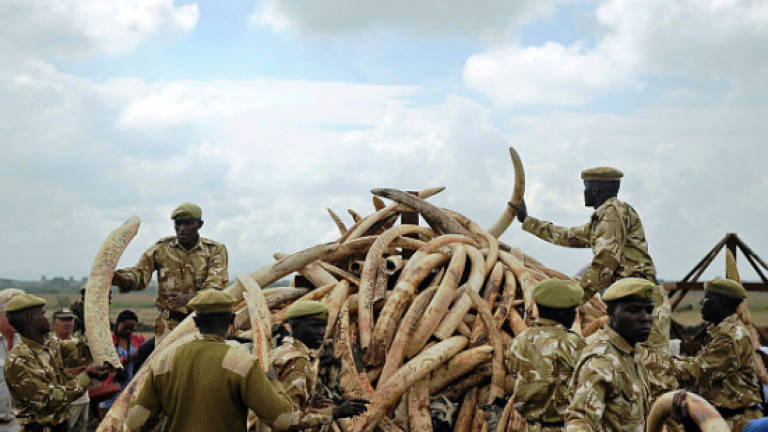Chinese buyers fuelling ivory surge in Laos, report says

NAIROBI: Surging demand from Chinese visitors has made Laos the world's fastest-growing market for ivory, conservation group Save the Elephants said Thursday.
China, currently the world's largest ivory market, has pledged to phase out its sales by the end of the year but with ivory trinkets still popular among Chinese consumers demand is shifting across the border.
Ivory sales have increased dramatically in Laos, Save the Elephants said in its new report, blaming lax enforcement of anti-ivory laws and lower prices.
Chinese visitors buy 80% of the ivory on sale in the landlocked southeast Asian country, the report said, while in the two main ivory marketplaces in the capital Vientiane and Luang Prabang the number of shops increased more than tenfold between 2013 and 2016.
"Although we've had much significant movement on curbing the ivory trade, the earth is not out of the woods yet," said Save the Elephants' founder Iain Douglas-Hamilton at the report's launch in Nairobi.
Laos is a signatory to the Convention on International Trade in Endangered Species of Wild Fauna and Flora (Cites) which means ivory trafficking is a crime, but the report said Laotian authorities barely enforce anti-ivory laws and only one seizure has been made in the country since it joined the convention in 2004.
"It can be stopped, but the difficulty is there's no law enforcement going on in the areas where the Chinese are," said Lucy Vigne, an ivory researcher with the Save the Elephants.
African ivory is highly sought after in China where it is seen as a status symbol and can fetch as much as US$1,100 (RM4,650) a kilo.
Similar increases in ivory sales have been found in neighbouring Vietnam and the autonomous territory of Hong Kong where, as in Laos, the majority of buyers are Chinese visitors seeking ivory at knockdown prices.
Hong Kong is considering its own ban on the ivory trade, but it would only come into effect in 2021, a time period conservationists say is too late for African elephants which continue to be killed in huge numbers.
Poaching in Africa has seen the elephant population fall by 110,000 over the last 10 years to just 415,000, according to the International Union for Conservation of Nature. — AFP